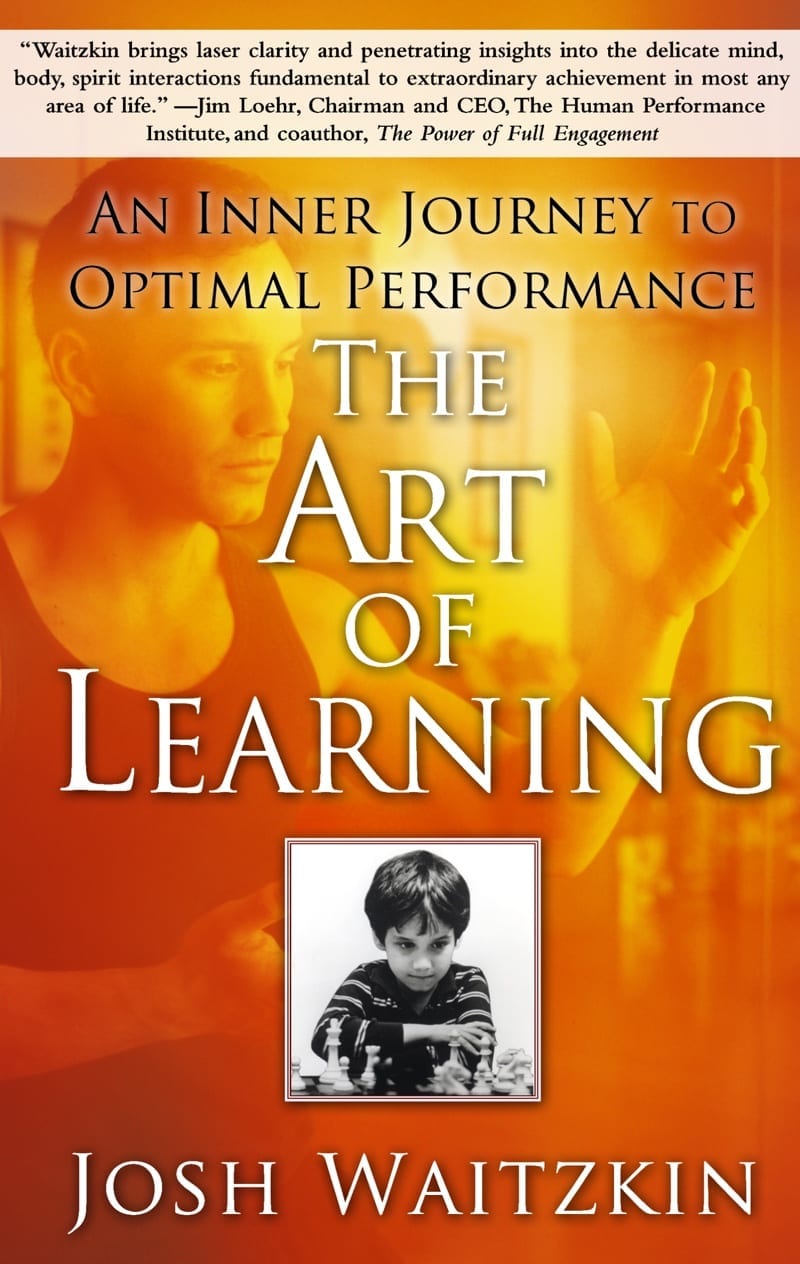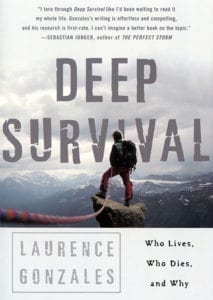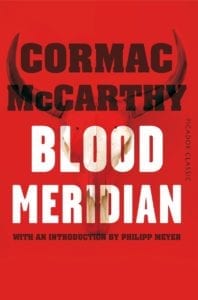The Art of Learning
My Thoughts
The Art of Learning reinforced many of the ideas from other books from this year’s Books of Titans reading list. I saw traces of Deep Survival, The 22 Immutable Laws of Marketing, Buck Up, Suck Up, Born Standing Up, Outliers, and Natural Born Heroes.
Written by Josh Waitzkin, a chess prodigy and Tai Chi world champion, The Art of Learning delves deep into what makes a top performer. Outliers highlights the 10,000 hour rule. The Art of Learning shows you how to make the best use of that time, to the point where you may not need 10,000 hours, or where you’ll keep digging so deep that you might wind up with 30,000 or 40,000 hours.
Here are some of the ideas that were interesting and/or connected with other Books of Titans books:
Numbers to leave numbers
The idea here is the beginning chess players number the pieces on the board in terms of value. They will consciously think of the numbers while playing the game. However, master chess players never think of the numbers while they are playing. They’ve played so much that they don’t need to think about the numbers anymore. The numbers are in their unconscious. To learn something well, a proper knowledge foundation is required, but the goal of that foundation is to push it to the unconscious, or as Josh eloquently puts it:
“The idea is to shift the primary role from the conscious to the unconscious without blissing out and losing the precision the conscious can provide.”
I see this in playing of the violin. I learned how to play the violin by ear. I later learned how to read music and read music while playing a variety of instruments. I no longer use music when playing the violin now. With some practice, I could read music again, but I don’t need to. I can hear the song and either learn it or hear the structure so I can join in and free-style.
Invest in Loss
Embrace the suck. To learn something well and become proficient, it oftentimes requires taking many steps back in order to move forward. It involves unlearning, getting rid of the stepping stones that may have led to knowledge but don’t contain the entire truth at higher levels of learning.
Keeping Your Cool
This idea tied in very closely with the lessons in Deep Survival:
“I learned at sea that virtually all situations can be handled as long as presence of mind is maintained. On the other hand, if you lose your calm when crisis hits seventy miles from land, or while swimming with big sharks, there is no safety net to catch you.”
Interval Training
This is an important distinction when considering the 10,000 hour rule. I run quite a bit. When I go and run, I do the same speed and the same loop nearly every time. I never get better with my time. I enjoy it and it’s a good release for me. But, if I wanted to improve, I would do interval training of going hard for a period of time and then going slow. Stress and release. Now, think about the runner doing the same thing for 10,000 hours vs the runner doing interval training for the majority of those 10,000 hours. Who is going to be the better runner? The first man to break the 4 minute mile, Roger Bannister, was a medical student at Oxford when he was training. He had very little time and would go on the track for 30 minutes and do intervals. He beat other runners who had more hours of training under their belts.
Practice and Daily Habits
One of my main takeaways from the Books of Titans books and Tim’s podcast is the necessity of daily habits and practice. If I have the choice between setting goals and setting daily habits, I should always choose daily habits. Daily habits are the action items to reach goals. Practice is the building up of a reserve for when it is needed. Josh highlights this in the following quote:
“The secret is that everything is always on the line. The more present we are at practice, the more present we will be in competition, in the boardroom, at the exam, the operating table, the big stage.”
This ties in very closely with Natural Born Heroes. The Cretans didn’t all of a sudden become heroes against the Nazis during WWII. They had cultivated a lifetime of daily routines, mindset, and habits that prepared them to be formidable foes.
It also ties in with Deep Survival. Oftentimes, our natural responses to a dire situation are the wrong ones. The way to break these natural responses is through daily habits and practice.
Mindfulness
Another important aspect of learning is mindfulness. The thing that most blew me away in The Art of Learning is when Josh talked about attacking an opponent in Tai Chi while they blink. Yes, while they blink. As in the fraction of a second it takes for the opponent to blink. Josh would anticipate the blink, attack, and leave the opponent stunned as to how they wound up on the ground. Many thought Josh was a Jedi-master or used some sort of magic. It wasn’t magic. It was presence of mind and focus.
—
This is an excellent, concise, and relatively quick read. It can be applied to most any topic, skill, job, or trade. I think this book has influenced Tim Ferriss more than his other two favorites (Vagabonding and The Graveyard Book) because I hear these ideas come out in his books and podcasts all the time.



